Keynote Address
The Trust Factor: A Critical Component of Effective Leadership
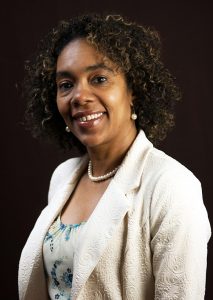 In this keynote address, Matrecia S. Long James, Ph.D., will emphasize the importance and impact of authentic leadership in today’s society. Trust is identified as a critical component and essential building block that supports and enhances job involvement, citizenship behavior and long-term commitment to leaders and organizations.
In this keynote address, Matrecia S. Long James, Ph.D., will emphasize the importance and impact of authentic leadership in today’s society. Trust is identified as a critical component and essential building block that supports and enhances job involvement, citizenship behavior and long-term commitment to leaders and organizations.
Aspect and dimensions of trust will be highlighted as the foundation of team building and performance. Leadership is based on human interactions, relationships and influence. Without trust, these phenomena are weak, fragile and short-term. Dr. James will identify ways to build trust and enhance the power and effectiveness of leadership.
Dr. James is the dean of the School of Business, Swan Business Center, at St. Bonaventure University and is founder and primary program developer of Multi-level Sustainable Leadership Consulting (MSL Consulting). She obtained her Ph.D. in Business Administration with a major area in Organizational Behavior and a support area in Human Resource Development and Behavioral Dynamics from the College of Business at the Florida State University.
She obtained a Bachelor’s of Science Degree in Business Administration with a minor in Accounting from the School of Business and Industry at Florida A&M University and a Master’s Degree in Business Education from the College of Education, also at Florida A&M University. Her research centers on cynicism in organizations, social influence, spirituality in the workplace and leadership. Her work has been published in numerous journals and conference proceedings. She is the former associate dean and director of graduate programs at the Davis College of Business at Jacksonville University, where she was the Shircliff Endowed Chair of Business Ethics. Dr. James also has experience in the retail and personnel development industries.
REGISTER FOR THE SUMMIT
DOWNLOAD THE BROCHURE
Breakout Session #1 | 10:15-11:30 a.m.
{Select 1 of 4 presentations}
Dashboards, Metrics and Scorecards: Donald Hahn
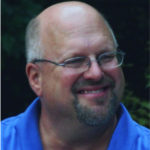 Ever glance in the cockpit of a 747 as you boarded the plan for a trip? If you are like me, you probably were astonished at the number of dials, lights and instruments, shaking your head with the seeming complexity of it all. In truth, pilots use four primary dials to make sure their plan stays on course and remains airborne. Providing one of their key dials suggests a problem, the pilot then gains greater insights by digging deeper into an associated dial. This dashboard is critical to focus on the most important performance indicators. Running a business is in many ways equal to or more challenging than keeping a plane airborne. Business owners need to measure and monitor several key “business dials” that highlight the health of their business. These dials are key performance metrics, which, when combined creates your business dashboard. This dashboard generally consists of 5 or 6 dials that measure the success of your business. What business dials are on your dashboard? What about the associated dashboards of those departments within your organization? Join us in building a focused dashboard for your organization.
Ever glance in the cockpit of a 747 as you boarded the plan for a trip? If you are like me, you probably were astonished at the number of dials, lights and instruments, shaking your head with the seeming complexity of it all. In truth, pilots use four primary dials to make sure their plan stays on course and remains airborne. Providing one of their key dials suggests a problem, the pilot then gains greater insights by digging deeper into an associated dial. This dashboard is critical to focus on the most important performance indicators. Running a business is in many ways equal to or more challenging than keeping a plane airborne. Business owners need to measure and monitor several key “business dials” that highlight the health of their business. These dials are key performance metrics, which, when combined creates your business dashboard. This dashboard generally consists of 5 or 6 dials that measure the success of your business. What business dials are on your dashboard? What about the associated dashboards of those departments within your organization? Join us in building a focused dashboard for your organization.
The Block Shop Gang. Morphed!! From Skepticism to Trust: Larry A. Penman
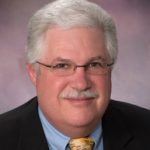 In this presentation, Larry Penman will describe how his fellow employees in “the Block Shop” successfully took “ownership” of Safety, Quality, and Production by keeping a People First philosophy in mind. Through empowerment, servant leadership, and specifying goals not methods, substantial gains were achieved by the members of the department. We have all heard those buzz words, but are we putting them to good use? Are we really living it, or just talking it? This discussion will give a great examples of an actual situation in which skepticism turned to trust.
In this presentation, Larry Penman will describe how his fellow employees in “the Block Shop” successfully took “ownership” of Safety, Quality, and Production by keeping a People First philosophy in mind. Through empowerment, servant leadership, and specifying goals not methods, substantial gains were achieved by the members of the department. We have all heard those buzz words, but are we putting them to good use? Are we really living it, or just talking it? This discussion will give a great examples of an actual situation in which skepticism turned to trust.
As a Leader – Building Work Relationships: John Stevens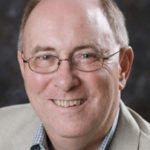
This session includes:
– understanding what affects your likeability at work
– how listening skills help build good working relationships
– tools to build trust in your organization
The format moves quickly and includes self-assessments, table discussions / group interaction, and a handout as a takeaway.
Succeeding in Turbulent Times: Going Beyond the Creative Edge: Joe Pillittere
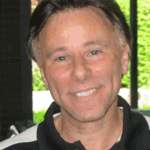 Innovation is essential to any successful organization, especially during turbulent times. However, an organization cannot depend on either the imaginative, holistic, right brain or the rational, analytical, left brain to be successful. Instead, an organization must engage both halves to create innovation and creativity on a level that fosters success. These “both-brain” organizations successfully capitalize on new ideas and concepts on a continuous basis. According to Harvard Business Review (June 2009), “The world’s most innovative companies often operate under some variation of a both-brain partnership.” Learn how to take innovation and creativity to the next level in your organization.
Innovation is essential to any successful organization, especially during turbulent times. However, an organization cannot depend on either the imaginative, holistic, right brain or the rational, analytical, left brain to be successful. Instead, an organization must engage both halves to create innovation and creativity on a level that fosters success. These “both-brain” organizations successfully capitalize on new ideas and concepts on a continuous basis. According to Harvard Business Review (June 2009), “The world’s most innovative companies often operate under some variation of a both-brain partnership.” Learn how to take innovation and creativity to the next level in your organization.
Breakout Session #2 | 12:30-1:45 p.m.
{Select 1 of 4 sessions}
Mentoring: An Overview of Benefits and “How Tos”: Kate Ebersole
 Mentoring is a very effective employee development tool. Mentoring can be either formal or informal, and in both cases it provides tools, guidance and support for newly appointed or promoted employees, or any employee taking on new tasks or responsibilities. Kate Ebersole has been mentoring in different organizations for the past 10 years, and brings that experience plus information about mentoring best practices to this interactive session on mentoring. Participants will learn about the benefits of mentoring to the mentee and the organization and will practice mentoring skills and be provided with tools to prepare themselves to become mentors.
Mentoring is a very effective employee development tool. Mentoring can be either formal or informal, and in both cases it provides tools, guidance and support for newly appointed or promoted employees, or any employee taking on new tasks or responsibilities. Kate Ebersole has been mentoring in different organizations for the past 10 years, and brings that experience plus information about mentoring best practices to this interactive session on mentoring. Participants will learn about the benefits of mentoring to the mentee and the organization and will practice mentoring skills and be provided with tools to prepare themselves to become mentors.
Strengths-Based Leadership/Development: Kirk Young
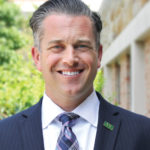 A person’s talents — those thoughts, feeling, and behaviors that come naturally —are the source of his or her true potential and power. The key to personal development and leadership success is to fully understand how to apply your greatest talents and strengths in your everyday life. It has been said that, “people don’t change that much. Don’t waste time trying to put in what was left out (rather) try to draw out what was left in. That is hard enough” (Buckingham & Coffman, 1999). Instead of spending inordinate amounts of time helping associates become “well-rounded,” many of the world’s best managers have instead invested time in learning about the individual talents of each of their associates, and managing with those unique talents in mind. “This concept not only applies to managers, but to educators, administrators, students, salespeople, leaders of faith communities, and essentially anyone who desires to heighten their self-awareness and change their paradigm from one of becoming average in many things to excelling in a few (key) areas” (Hodges). Dr. Young’s presentation will consist of a description of strengths-based development, as well as what it means to lead from our strengths. This interactive and engaging presentation will provide a fundamental overview of this leadership approach as well as ideas for how it can be incorporated into the leadership practices of those in attendance.
A person’s talents — those thoughts, feeling, and behaviors that come naturally —are the source of his or her true potential and power. The key to personal development and leadership success is to fully understand how to apply your greatest talents and strengths in your everyday life. It has been said that, “people don’t change that much. Don’t waste time trying to put in what was left out (rather) try to draw out what was left in. That is hard enough” (Buckingham & Coffman, 1999). Instead of spending inordinate amounts of time helping associates become “well-rounded,” many of the world’s best managers have instead invested time in learning about the individual talents of each of their associates, and managing with those unique talents in mind. “This concept not only applies to managers, but to educators, administrators, students, salespeople, leaders of faith communities, and essentially anyone who desires to heighten their self-awareness and change their paradigm from one of becoming average in many things to excelling in a few (key) areas” (Hodges). Dr. Young’s presentation will consist of a description of strengths-based development, as well as what it means to lead from our strengths. This interactive and engaging presentation will provide a fundamental overview of this leadership approach as well as ideas for how it can be incorporated into the leadership practices of those in attendance.
Examining and Addressing Critical Issues – An Interactive Workshop: Pamela Witter
 In this session, attendees participant in an interactive, hands-on workshop. We begin by reviewing the value of transition or critical issues planning before or between strategic plans, based in part on Kotter’s 8 Stage of Organizational Transformation. By defining the difference between strategic and operational objectives, participants will identify and narrow in on the goals in progress and aspirational goals, and where they should sit in the organization. Groups will discuss a few of the critical issues identified, examining insights in order to refine their scope. Using Eisenhower’s Decision Matrix we learn to rank issues and subsequently develop the who, what, where and when for achievement. We will conclude by exploring strategic agendas that will drive progress on achievement of goals at the team level.
In this session, attendees participant in an interactive, hands-on workshop. We begin by reviewing the value of transition or critical issues planning before or between strategic plans, based in part on Kotter’s 8 Stage of Organizational Transformation. By defining the difference between strategic and operational objectives, participants will identify and narrow in on the goals in progress and aspirational goals, and where they should sit in the organization. Groups will discuss a few of the critical issues identified, examining insights in order to refine their scope. Using Eisenhower’s Decision Matrix we learn to rank issues and subsequently develop the who, what, where and when for achievement. We will conclude by exploring strategic agendas that will drive progress on achievement of goals at the team level.
Build your Culture through Employee Engagement: Brian George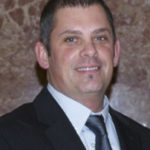
Employee engagement is critical to the long-term sustainable success of an organization. In this session we will discuss the vision and tools necessary to build your culture through people. New programs and catch phrases typically get your attention, but we will offer real life application and a lessons learned approach to time spent on building an impactful work environment. We will also discuss the process used to activate your people to be the catalyst in growing your own unique cultural brand.
Breakout Session #3 | 2-3:15 p.m.
{Select 1 of 4 sessions)
 Professionalism and Ethics in the Workplace: Amber Stuck
Professionalism and Ethics in the Workplace: Amber Stuck
There is no such thing as one job that is to be performed professionally, and another that is not. Regardless of its size or nature, every job can be performed in a professional manner. By learning what it means to be a professional and then to think and act professionally, participants will expand their experiences, improve their abilities, and increase their career and lifetime rewards, success, and happiness. Participants will learn about the important keys to being a true professional in the workplace. Being of good character (making ethical decisions) can be difficult. In a world full of economic, professional and social pressure, the moral issues can get buried as we try to make our own way through the world. Just as in our individual lives, sometimes character issues arise in the workplace – views can clash and we are forced to rank the issues according to the consequences of our choices. Participants will learn how to make ethical decisions and receive practical tools to assist them in making those decisions.
Beyond the Divide: Presenters: Christina Lopez and Mike Marvin
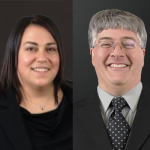 The gender war is over — and if it isn’t, it should be. Most people are willing to work for gender equality that leads to positive and productive relationships with the opposite sex. Applying the current social and interpersonal tools available often leaves them feeling frustrated and exhausted. These “best practices” are built on a flawed adversarial system of “us vs. them,” which perpetuates the gender gap — a divide between men and women. Mike Marvin and Christina Lopez help men and women get beyond the divide and experience the power of working together.
The gender war is over — and if it isn’t, it should be. Most people are willing to work for gender equality that leads to positive and productive relationships with the opposite sex. Applying the current social and interpersonal tools available often leaves them feeling frustrated and exhausted. These “best practices” are built on a flawed adversarial system of “us vs. them,” which perpetuates the gender gap — a divide between men and women. Mike Marvin and Christina Lopez help men and women get beyond the divide and experience the power of working together.
Becoming a LinkedIn All-Star: Ryan Michelle Wilcox
 In this seminar, learn to create and optimize your LinkedIn profile, expand your network and utilize the site’s resources including training, recruiting, advertising and job searching. We will discuss our overall online presence, including on Twitter and Facebook, as well.
In this seminar, learn to create and optimize your LinkedIn profile, expand your network and utilize the site’s resources including training, recruiting, advertising and job searching. We will discuss our overall online presence, including on Twitter and Facebook, as well.
Winning the War Within – How Checking Your Ego and Taking Ownership Can Make You A Better Leader: CJ Mackey
 As human beings it’s easy to pass blame when things go wrong. Especially when your reputation is on the line and your ego is damaged. Most people will pass that blame, thinking that they’ve saved themselves from scrutiny and prevented their image from being harmed. However, effective leaders understand that this couldn’t be further from the truth. This session will reflect on how checking your ego at the door and taking ownership of any situation not only strengthens your reputation, but the trust that your team has in you.
As human beings it’s easy to pass blame when things go wrong. Especially when your reputation is on the line and your ego is damaged. Most people will pass that blame, thinking that they’ve saved themselves from scrutiny and prevented their image from being harmed. However, effective leaders understand that this couldn’t be further from the truth. This session will reflect on how checking your ego at the door and taking ownership of any situation not only strengthens your reputation, but the trust that your team has in you.